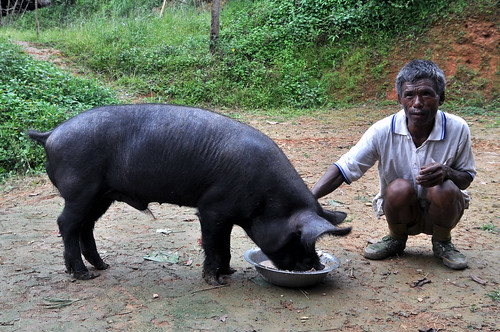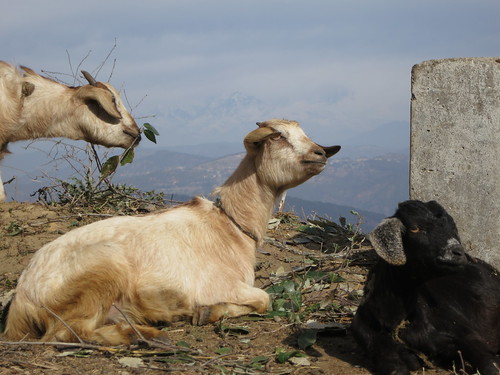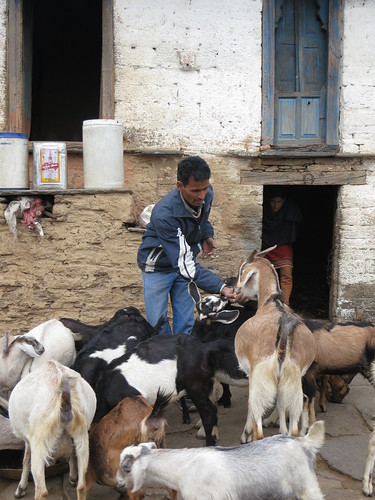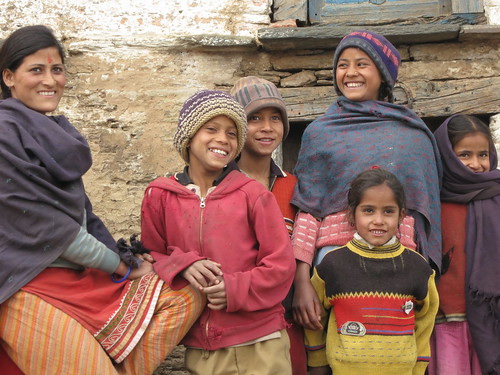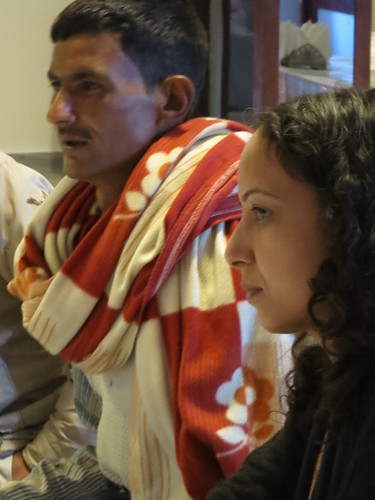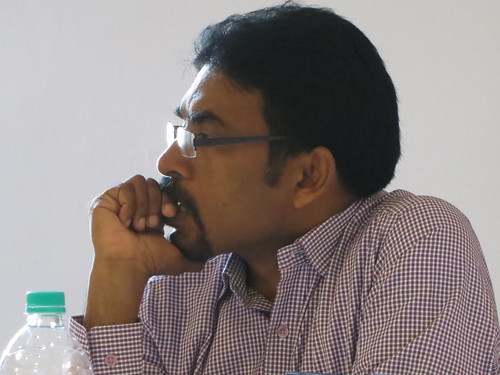A pig farmer in Nagaland, India. A Tata-ILRI partnership is helping Indian farmers beat classical swine fever to boost pig production (photo credit: ILRI/Ram Deka).
A program that is supporting rural Indian farmers improve their livelihoods by helping them to raise pigs more efficiently is the highlight of a new annual report by a project coordinated by the International Livestock Research Institute (ILRI).
The project, ‘Enhancing livelihoods through livestock knowledge systems’, is a partnership between the Sir Ratan Tata Trust, the Navajbai Ratan Tata Trust and ILRI that was started in 2011. The pig farming component of the project is being implemented in four Indian states: Jharkhand, Arunachal, Mizoram and Nagaland.
‘We support animal breeding, feeding, housing, health care and marketing through appropriate institutions,’ said V Padmakumar, the project’s coordinator from ILRI, who is based in ILRI’s Hyderabad office.
Nearly 80 per cent of the households in the four states rear pigs in smallholder systems, with each household rearing up to three pigs. Pork meets a significant part of the dietary protein needs of these communities.
‘Pig farmers in these remote areas not only have difficulty accessing markets due to poor roads but also have little knowledge on how they can improve their feeds and feeding systems to speed and increase their pig production,’ says Padmakumar. ‘Veterinary services are also scarce,’ he said.
One of the project’s key successes has been to raise attention of the need to improve veterinary services to deal with classical swine fever, a highly contagious and potentially fatal viral disease of pigs.
The project carried out a survey in 2011 that revealed that smallholder farmers in Assam, Mizoram and Nagaland lose, each year, nearly USD40 million in incomes due to the costs of treating and replacing pigs lost to classical swine fever.
Targeted advocacy by the project has increased government attention to the burden of this disease on the country’s smallholders. As a result, there now exists a nationwide swine fever control program that is prioritizing interventions against the disease in Assam, Mizoram and Nagaland. The project has also managed to raise awareness of control options available for controlling classical swine fever; the government is now supporting increased in-country production of vaccines that will protect pig populations against the disease.
Read the ‘Tata-ILRI Partnership Program’ annual report.
Download the project policy brief.

